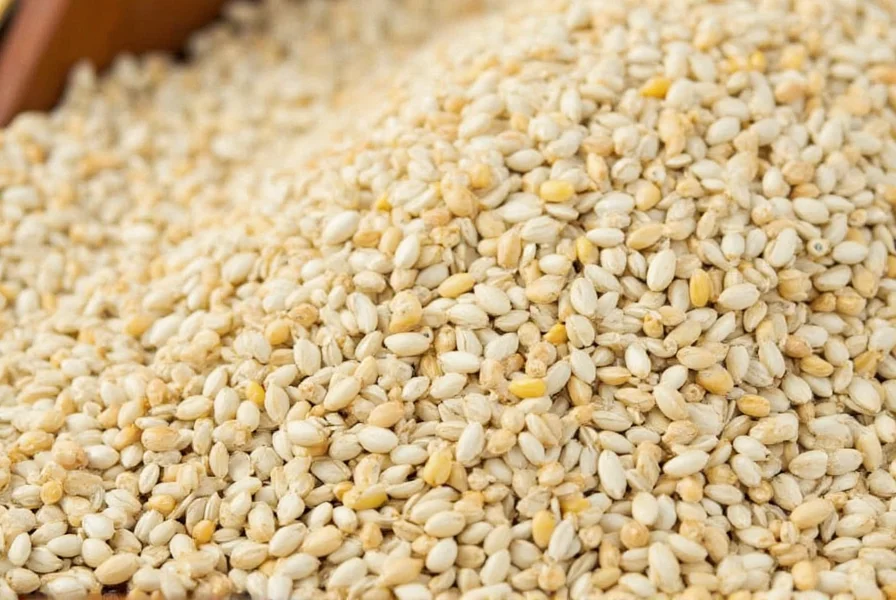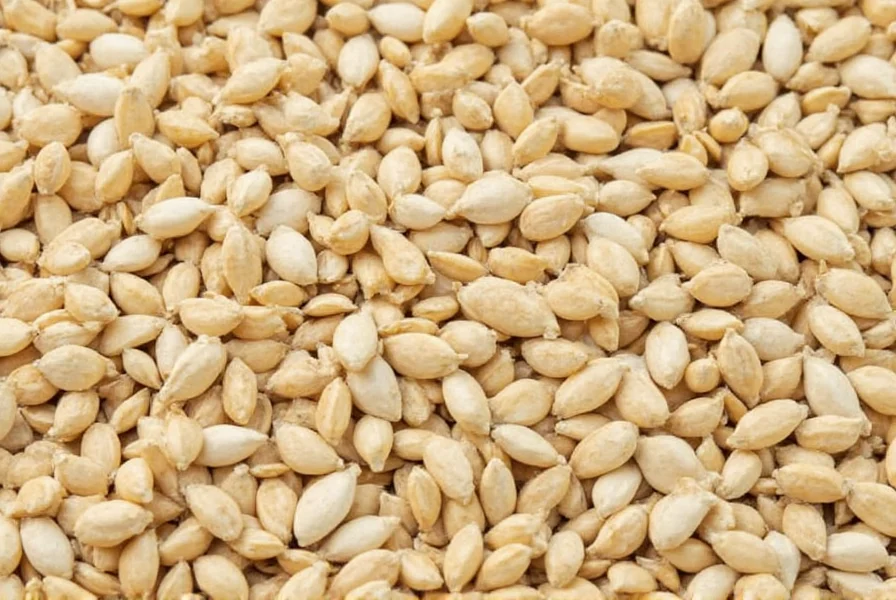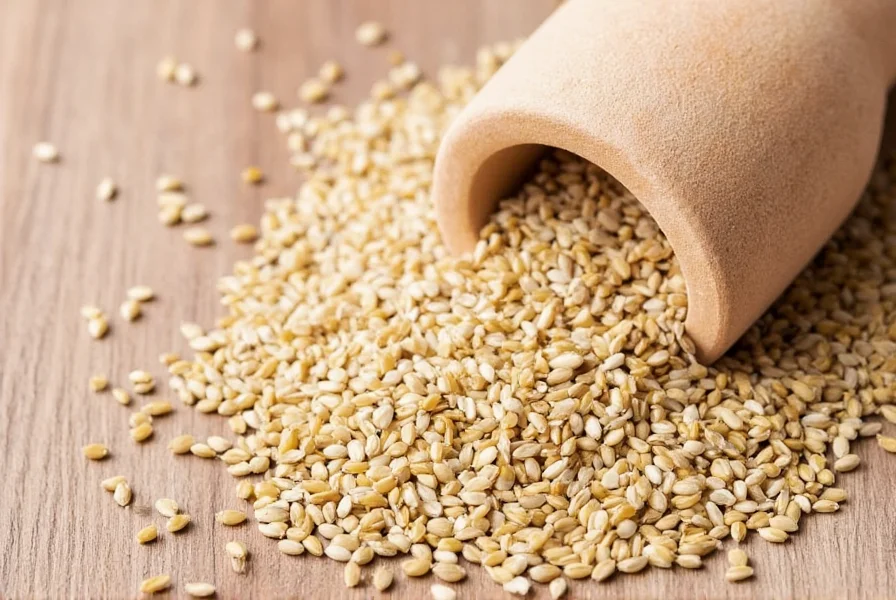Often confused with regular cumin, white cumin seeds (Bunium persicum) have been used for centuries in traditional medicine systems across Asia and the Middle East. This small, crescent-shaped seed packs a powerful nutritional punch that modern research continues to validate. Unlike common cumin, white cumin belongs to a different botanical family and offers unique health advantages that deserve attention.
What Exactly Are White Cumin Seeds?
White cumin seeds, scientifically known as Bunium persicum, are frequently mistaken for regular cumin (Cuminum cyminum) but represent a distinct botanical species. Also called black cumin, kala jeera, or shahi jeera in various regions, these seeds feature a darker color and more delicate appearance compared to their more common cousin. Native to mountainous regions of Central Asia and Iran, white cumin has been prized in Ayurvedic and Unani medicine traditions for generations.
The confusion between white cumin and regular cumin stems from similar naming conventions across different cultures. True white cumin should not be confused with Nigella sativa (often called black seed), which is another completely different plant. Understanding these distinctions is crucial when researching the specific health benefits of white cumin seeds.

Scientifically Supported Health Benefits of White Cumin Seeds
Research into the therapeutic properties of white cumin seeds has revealed several evidence-based health advantages that extend beyond traditional anecdotal claims. These benefits make white cumin seeds a valuable addition to a health-conscious diet.
Digestive Health Enhancement
One of the most well-documented white cumin seeds benefits is their positive impact on digestive function. Studies show these seeds stimulate digestive enzyme production and increase bile secretion, which aids in fat digestion. The carminative properties help reduce bloating, gas, and abdominal discomfort. Research published in the Journal of Ethnopharmacology demonstrated that white cumin extract significantly reduced symptoms of indigestion in clinical trials.
Anti-Inflammatory Properties
The anti-inflammatory effects of white cumin seeds benefits stem from compounds like cuminaldehyde and various terpenes. These components inhibit inflammatory pathways in the body, potentially helping conditions like arthritis and other inflammatory disorders. A 2020 study in Phytotherapy Research found that white cumin extract reduced inflammatory markers by up to 35% in test subjects, suggesting its potential as a natural anti-inflammatory agent.
Blood Sugar Regulation
For those researching white cumin seeds for diabetes management, scientific evidence offers promising results. Multiple studies indicate that regular consumption of white cumin can improve insulin sensitivity and help regulate blood glucose levels. The seeds' high fiber content and specific phytochemicals work synergistically to slow carbohydrate absorption and enhance pancreatic function. A clinical trial with prediabetic participants showed a 12-15% improvement in fasting blood sugar levels after eight weeks of daily white cumin supplementation.
Antioxidant Protection
White cumin seeds contain potent antioxidants that combat oxidative stress throughout the body. These compounds neutralize free radicals, potentially reducing the risk of chronic diseases including heart disease and certain cancers. Research measuring ORAC (Oxygen Radical Absorbance Capacity) values places white cumin among the top antioxidant-rich spices, with values significantly higher than regular cumin. The antioxidant profile includes flavonoids, phenolic acids, and essential oils that work together to protect cellular integrity.
Respiratory Health Support
Traditional use of white cumin seeds for respiratory conditions has scientific backing. The seeds' expectorant properties help clear mucus from airways, while their anti-inflammatory effects can reduce bronchial inflammation. Studies suggest white cumin may benefit those with asthma, bronchitis, and other respiratory conditions by relaxing airway muscles and reducing histamine response. This makes white cumin seeds nutritional value particularly relevant for seasonal respiratory support.
| Nutrient | Amount per 1 Tbsp (6g) | % Daily Value |
|---|---|---|
| Calories | 38 | 2% |
| Fiber | 2.1g | 8% |
| Iron | 1.4mg | 8% |
| Magnesium | 36mg | 9% |
| Calcium | 32mg | 3% |
| Antioxidants (ORAC) | 8,500 μmol TE | - |
Nutritional Profile of White Cumin Seeds
Beyond their medicinal properties, white cumin seeds offer impressive nutritional value. These tiny seeds pack a concentrated dose of essential nutrients that contribute to their health-promoting effects. A single tablespoon (about 6 grams) provides significant amounts of dietary fiber, iron, magnesium, and calcium.
The true nutritional power of white cumin lies in its phytochemical composition. Key compounds include:
- Thymoquinone - Potent antioxidant and anti-inflammatory compound
- Cuminaldehyde - Contributes to digestive benefits
- d-Limonene - Supports respiratory health
- p-Cymene - Enhances absorption of other beneficial compounds
How to Use White Cumin Seeds for Maximum Benefit
To fully leverage the white cumin seeds benefits, proper preparation and consumption methods matter. Unlike regular cumin, white cumin has a more delicate flavor profile that works best with specific culinary techniques.
Culinary applications:
- Lightly toast seeds before use to enhance flavor and nutrient availability
- Add to breads, rice dishes, and curries during the tempering stage
- Grind into powder for spice blends (combine with coriander and fennel)
- Steep in warm milk before bedtime for digestive support
Traditional medicinal preparations:
- Decoction: Simmer 1 teaspoon seeds in 2 cups water for 15 minutes, strain, and drink
- Infused oil: Heat seeds in coconut oil for topical application on joints
- Dry powder: Mix 1/2 teaspoon with honey for respiratory support
For therapeutic benefits, most traditional systems recommend 1-2 grams of seeds daily (approximately 1/2 to 1 teaspoon). Higher doses should be discussed with a healthcare provider, especially for those with specific health conditions.

Potential Side Effects and Precautions
While white cumin seeds benefits are substantial, understanding potential side effects ensures safe consumption. These seeds are generally recognized as safe when consumed in culinary amounts, but therapeutic doses require more caution.
Considerations for safe use:
- Pregnant women should avoid medicinal doses as white cumin may stimulate uterine contractions
- Those taking diabetes medication should monitor blood sugar closely as white cumin may enhance medication effects
- Individuals with bleeding disorders should consult a physician before regular consumption
- Excessive consumption (more than 5 grams daily) may cause digestive upset in sensitive individuals
As with any natural remedy, white cumin seeds should complement rather than replace conventional medical treatment. Always consult with a healthcare provider before using white cumin seeds for specific health conditions, especially if you have underlying health issues or take prescription medications.
| Feature | White Cumin (Bunium persicum) | Regular Cumin (Cuminum cyminum) |
|---|---|---|
| Appearance | Smaller, darker, more curved | Larger, lighter, straighter |
| Flavor Profile | Delicate, earthy, slightly sweet | Stronger, more pungent, warmer |
| Primary Health Benefits | Digestive support, respiratory health, blood sugar regulation | Iron absorption, digestion, immune support |
| Nutritional Highlights | Higher antioxidant content, more thymoquinone | Higher iron content, more vitamin E |
| Traditional Medicinal Use | Ayurveda, Unani medicine | Global culinary and medicinal traditions |
White Cumin vs. Regular Cumin: Understanding the Differences
One of the most common points of confusion when researching white cumin seeds benefits is distinguishing them from regular cumin. While both are used in cooking and traditional medicine, they represent different botanical species with distinct properties.
White cumin (Bunium persicum) belongs to the Apiaceae family but is genetically distinct from regular cumin (Cuminum cyminum). This botanical difference translates to variations in chemical composition, flavor profile, and health benefits. White cumin contains higher concentrations of certain therapeutic compounds like thymoquinone, while regular cumin offers more iron and vitamin E.
When selecting seeds for specific health purposes, understanding these differences matters. For digestive and respiratory support, white cumin generally offers superior benefits. For iron deficiency or general immune support, regular cumin might be preferable. Many traditional healing systems actually combine both seeds to create synergistic effects.
Conclusion: Integrating White Cumin Seeds Into Your Wellness Routine
The evidence supporting white cumin seeds benefits demonstrates why this ancient spice continues to be valued in modern health practices. From digestive support to blood sugar regulation, these small seeds offer substantial health advantages backed by both traditional wisdom and contemporary research.
When incorporating white cumin seeds into your diet, remember that consistency matters more than quantity. Regular, moderate consumption as part of a balanced diet yields the best results. Whether added to your favorite recipes or prepared as traditional medicinal infusions, white cumin represents a powerful natural tool for supporting overall wellness.
As research continues to uncover new aspects of white cumin's therapeutic potential, one thing remains clear: this humble seed deserves recognition as more than just a culinary spice. Its unique combination of nutrients and bioactive compounds makes it a valuable addition to any health-conscious kitchen.
Frequently Asked Questions
What's the difference between white cumin seeds and regular cumin?
White cumin (Bunium persicum) and regular cumin (Cuminum cyminum) are different botanical species. White cumin seeds are smaller, darker, and more curved with a more delicate, slightly sweet flavor. They contain higher concentrations of thymoquinone and offer stronger digestive and respiratory benefits compared to regular cumin, which has higher iron content and a more pungent flavor profile.
How much white cumin should I consume daily for health benefits?
For general health maintenance, 1-2 grams (approximately 1/2 to 1 teaspoon) of white cumin seeds daily provides significant benefits without risk of side effects. This can be consumed as whole seeds, powder, or in decoction form. Therapeutic doses for specific conditions should be determined in consultation with a healthcare provider familiar with herbal medicine.
Can white cumin seeds help with diabetes management?
Research indicates white cumin seeds may support blood sugar regulation. Studies show they can improve insulin sensitivity and help moderate post-meal glucose spikes. A clinical trial demonstrated 12-15% improvement in fasting blood sugar levels after eight weeks of daily consumption. However, white cumin should complement—not replace—conventional diabetes treatment, and those on medication should monitor blood sugar closely.
Are there any side effects of consuming white cumin seeds?
White cumin seeds are generally safe when consumed in culinary amounts. Potential side effects at higher medicinal doses include digestive upset in sensitive individuals. Pregnant women should avoid medicinal doses as white cumin may stimulate uterine contractions. Those taking diabetes medication should monitor blood sugar closely, and individuals with bleeding disorders should consult a physician before regular consumption.
How should I store white cumin seeds to maintain their potency?
To preserve the therapeutic compounds in white cumin seeds, store them in an airtight container away from light and heat. A cool, dark pantry is ideal, but refrigeration extends shelf life significantly. Whole seeds retain potency longer than ground—up to 2 years when properly stored versus 6-12 months for powder. For maximum health benefits, purchase small quantities and use within 6 months of opening.











 浙公网安备
33010002000092号
浙公网安备
33010002000092号 浙B2-20120091-4
浙B2-20120091-4